2020 SoLAR Executive Committee Nominees
January 16, 2020
We are pleased to present the following candidates as nominees for election to the SoLAR Executive:
Candidates for SoLAR Executive Member at Large
(13 Candidates, 4 Positions Available)
Simon Buckingham Shum, University of Technology Sydney, AUS
Bodong Chen, University of Minnesota, USA
Guanliang Chen, Monash University, AUS
Nia Dowell, University of California – Irvine, USA
Victoria Dunnam, Consultant, USA
Carrie Demmans Epp, University of Alberta, CAN
Erkan Er, University of Valladolid, ES
Christothea Herodotou, The Open University, UK
Isabel Hilliger, Pontificia Universidad Católica de Chile, CL
Jorge Javier Maldonado Mahauad, Universidad de Cuenca (EC) / Pontificia Universidad Católica de Chile (CL)
Rafael Ferreira Mello, Federal Rural University of Pernambuco, BR
Pablo Munguia, RMIT University, AUS
Hiroaki Ogata, Kyoto University, JPN
 Simon Buckingham Shum, Australia
Simon Buckingham Shum, Australia
University of Technology Sydney
Interest in Learning Analytics (Research Area, etc.) & Interest in serving on the SoLAR Executive Committee: Coming from the human sciences, I bring specific interests in (i) the human-centred design of Learning Analytics, (ii) the ethics of analytics, and (iii) analytics to advance future-focused pedagogy that equips learners for the future of work, such as giving learners better feedback on higher order competencies such as writing, teamwork and dispositions. As an applied researcher directing a Learning Analytics innovation centre, my passion is to see SoLAR and LAK carve a distinctive niche as a discipline, able to communicate its work in accessible ways to promote quality dialogue across disciplinary silos and researcher-practitioner-vendor boundaries.
Biography: Simon Buckingham Shum is Professor of Learning Informatics at the University of Technology Sydney, which he joined as Director in August 2014 to launch the Connected Intelligence Centre. He brings a Human-Centred Informatics (HCI) approach to his work, with a background in Psychology, Ergonomics, and HCI, and extensive work on tools to make personal and collective thinking visible. He has been active in shaping the field of Learning Analytics since the inaugural LAK 2011 conference, serving as Program Co-Chair in 2012 and 2018, and a regular keynote speaker. He was a co-founder of SoLAR, serving on the Executive 2012-14 and 2018-present, including as a Vice-President. He currently chairs the SoLAR Education Working Group and is a regular LAK Doctoral Consortium co-chair.
Working Group Interests: Education (Current Chair)
 Bodong Chen, United States
Bodong Chen, United States
University of Minnesota
Interest in Learning Analytics (Research Area, etc.) & Interest in serving on the SoLAR Executive Committee: My research interests include network analysis, temporal analysis, text mining, analytic tools for higher-order competencies, student-facing learning analytics. Since joining SoLAR as a student member in 2014, I have benefited a great deal from the community. I would like to contribute more back to the community. I have co-chaired a few workshops and the doctoral consortium and serve on the editorial board of JLA. I am interested in participating in the Executive Committee to facilitate educational activities around the world and grow emerging areas of learning analytics to strengthen our community.
Biography: Bodong Chen is an Associate Professor at the University of Minnesota–Twin Cities. He holds the Bonnie Westby Huebner Endowed Chair in Education & Technology and co-directs the Learning Informatics Lab. His research sits at the intersection of learning sciences, learning analytics, online learning, and network science. He develops digital learning environments, analytics applications, and pedagogical practices for collaborative learning. He derives graph metrics to capture discourse patterns, applies relational event modeling to examining socio-temporal dynamics in online discussions, and uses data mining to investigate teacher professional learning in MOOCs.
Working Group Interests: Education, Special Interest Groups
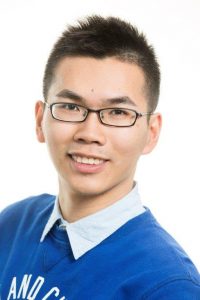 Guanliang Chen, Australia
Guanliang Chen, Australia
Monash University, Australia
Interest in Learning Analytics (Research Area, etc.) & Interest in serving on the SoLAR Executive Committee: Since the start of my Ph.D. study in March 2015, I have become an enthusiast of learning analytics. At first, my research mainly focused on gathering various types of data to better profile online learners and build more effective tools to facilitate their learning. After dealing with different types of data, currently, I mainly work on applying state-of-the-art language technologies, especially those built on deep neural networks, to analyze and utilize the textual data collected in various educational settings, such as Q&A in online discussion platforms, tutorial dialogues, essays, and textual feedback carefully-crafted by instructors. Beyond question, SoLAR is the biggest and most influential learning analytics community in the world. If I were to get the opportunity to serve on the SoLAR Executive Committee, this would greatly benefit me in my career development path as a learning analytic researcher, e.g., making acquaintances to more senior members, capturing the trend of the field, getting opportunities to develop and promote initiatives to help countries like China, where learning analytics is far under-explored, to utilize the power of learning analytics.
Short biography: Dr. Guanliang Chen is serving as a Lecturer at the Faculty of Information Technology, Monash University in Melbourne, Australia. Before joining Monash University, Guanliang obtained his Ph.D. degree at the Delft University of Technology in the Netherlands, where he focused on the research on large-scale learning analytics with a particular focus on the setting of Massive Open Online Courses. Currently, Guanliang is mainly working on applying novel language technologies to build intelligent educational applications. His research works have been published in international journals and conferences including AIED, EDM, LAK, L@S, EC-TEL, ICWSM, UMAP, Web Science, Computers & Education, and IEEE Transactions on Learning Technologies. Besides, he co-organized several international workshops/symposiums and has been invited to serve as the program committee member for international conferences such as LAK, EDM, FAT, ICWL, etc.
Working Group Interests: Inclusion, Special Interest Groups, Website
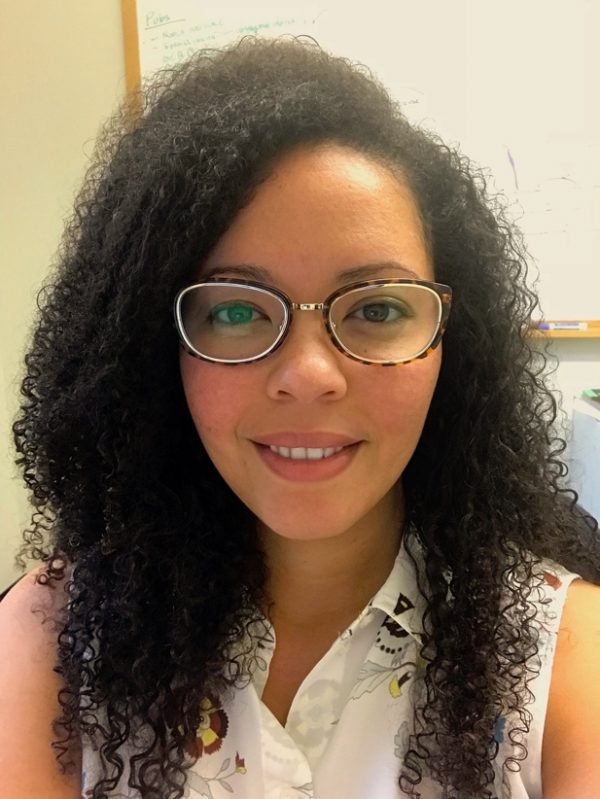 Nia Dowell, United States
Nia Dowell, United States
University of California, Irvine
Interest in Learning Analytics (Research Area, etc.) & Interest in serving on the SoLAR Executive Committee: I have been involved with the Learning Analytics and Knowledge (LAK) community for over five years. My interest and commitment to learning analytics has motivated the creation of the LA-Lab at UCI. The LA-Lab includes researchers with backgrounds in cognitive and learning science, information, psychology, and statistics. Within the LA-Lab, I bring together an interdisciplinary group of students and faculty who explore the intersections of technology with teaching, learning, and education, with a particular focus on learning analytics, educational data mining, and collaborative engagement. The LA-Lab takes a multi-disciplinary approach that builds on theories and methods in the learning sciences, cognitive psychology, human-computer interaction, artificial intelligence, and computational social sciences. My team and I conduct basic research on sociocognitive and affective processes across a range of educational technology interaction contexts and develop computational models of these processes and their relationship to learner outcomes. As a SoLAR executive committee member, I would like to deepen this engagement to help shape and guide how SoLAR continues to serve the broader learning analytics community.
Biography: Nia Dowell is an Assistant Professor in Education at UC-Irvine and director of the Learning Analytics Laboratory (LA-Lab). Her primary interests are in cognitive psychology, discourse processing, group interaction, and learning analytics. Her research focuses on using quantitative measures of language and discourse to reveal the dynamics of socially significant cognitive and affective processes. She is currently applying computational techniques to model discourse and social dynamics in a variety of environments including small group computer- mediated collaborative learning environments, collaborative design networks, and massive open online courses (MOOCs). Her research has also extended beyond the educational and learning sciences spaces and highlighted the practical applications of computational discourse science in the clinical, political and social sciences.
Working Group Interests: Inclusion, Special Interest Groups
 Victoria Dunnam, United States
Victoria Dunnam, United States
Consultant, United States
Interest in Learning Analytics (Research Area, etc.) & Interest in serving on the SoLAR Executive Committee: I have a passion for online learning and learning analytics with over 20 years’ experience in online education. I am interested in helping the SoLAR organization continue to expand research learning analytics to provide further validation and to continue expanding opportunities for publishing articles.
My dissertation was titled “Correlational Study Examining Graduate Students Online Interactions Using Learning Analytics” and examined the number of times students interacted with course content, instructor, other students or course design using learning analytics. When I was researching for my dissertation, I came across your organization and one of the areas that peaked my interest in your organization was how you allowed students to submit their research projects and your organization allowed them to attend your conference where professionals would give guidance in a round table discussion with the student. What a unique opportunity to invest in the future generation.
I would love the opportunity to collaborate with other professionals with the same passion of using learning analytics to broaden the knowledge of education, learning analytics, and data mining. I would love to be connected to other professionals who share the same passion for learning analytics. Being able to serve on the SoLAR Executive Committee would provide an opportunity to share my experience with others and work with others who share the same passion in guiding this organization to expanding its endeavors in learning analytics.
Biography: Dr. Victoria Dunnam has over 20 years’ experience in online education in K-12 education, Higher Education, and the business environment. As a “life-long learner,” my passion is for learning, integrating technology, learning analytics, and research. Integrating technology into learning and work environments by designing quality online courses has been part of my career for many years. Dr. Dunnam has experience in integrating technology into learning environments, online instructional design of course content, researching learning analytics, and conducting instructor-led sessions and online workshops in Higher Education, K-12, and business environments. As an enthusiastic and innovative leader, Dr. Dunnam has spearheaded online learning programs by increasing online course offerings by 300% and implemented a certification teaching program from inception to completion with 100% success rate. Strengths include being proficient in prioritizing, multi-tasking, extensive knowledge in strategic planning, research, implementation, instructional design, and collaborative processes in online education. Dr. Dunnam’s goal is to leverage her educational, technological, and leadership skills to promote learning analytics within SoLAR organization.
Working Group Interests: Education, Communications
 Carrie Demmans Epp, Canada
Carrie Demmans Epp, Canada
University of Alberta
Interest in Learning Analytics (Research Area, etc.) & Interest in serving on the SoLAR Executive Committee: I am interested in learning analytics insofar as they can inform the adaption of a learning experience or learning environment. This adaption can be performed automatically or by humans when the analytics are presented in a way that enables human understanding and decision making. A large portion of my work investigates the visualization of analytics and the development of socio-technical processes to support analytics use.
I’m interested in joining the SoLAR executive because I want to see a greater diversity in the methods and theories used when creating and acting upon learning analytics. I’m also interested in facilitating a stronger integration of the approaches used across contributing disciplines.
Biography: Carrie Demmans Epp is an Assistant Professor in the Department of Computing Science at the University of Alberta, where she runs the EdTeKLA research group. Carrie teaches courses on human-computer interaction, natural language processing, and learning analytics. She completed her postdoctoral research at the Learning Research and Development Center of the University of Pittsburgh. Before moving to Pittsburgh, Carrie held Weston and Walter C. Sumner Memorial Fellowships. She was also a visiting researcher with the Open Learner Models at Birmingham group (UK) and the Graduate School of Language, Communication, and Culture at Kwansei Gakuin University (Japan).
She earned her PhD from the University of Toronto, where she developed an adaptive mobile-assisted language-learning tool and explored its use. While earning her MSc (University of Saskatchewan), Carrie integrated her BSc in Russian and Computer Science by building a pronunciation tutor that gave students access to their analytics.
Carrie’s work focuses on developing and studying adaptive educational technologies and the mechanisms that are used to provide analytics to learners within these environments. Her work integrates human-computer interaction, artificial intelligence, psychology, and education to support a variety of populations that include university students, underprivileged children, students in special education settings, and language learners.
Working Group Interests: Special Interest Groups, Inclusion or Education
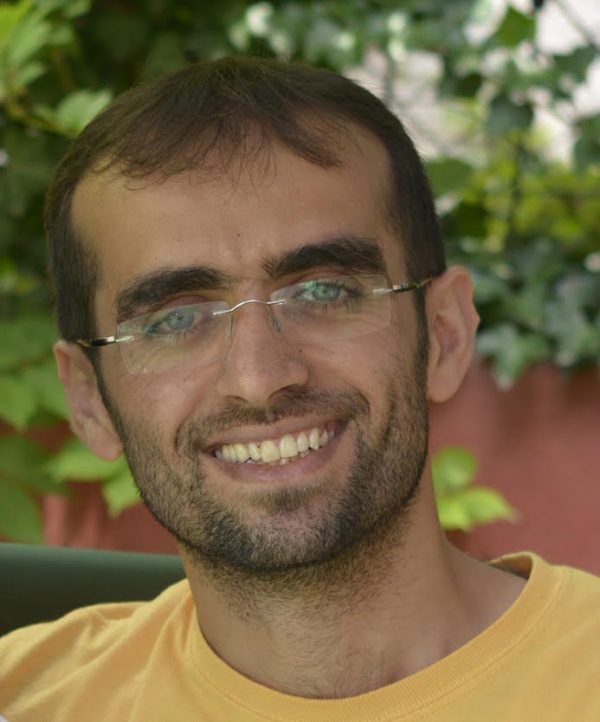 Erkan Er, Spain
Erkan Er, Spain
University of Valladolid
Interest in Learning Analytics (Research Area, etc.) & Interest in serving on the SoLAR Executive Committee: My current research interest within the LA domain focuses on enhancing the scalability of dialogic peer feedback by enabling instructors’ ability to intervene timely. For developing a sound and robust LA support, I think it is essential to integrate both relevant learning analytics and the human-related factors in a balanced way. Having the first prototype formulated based on learning theories, in the next phase I will work with instructors to improve the prototype based on their preferences and contextual needs through several iterations. My interest in serving on the SoLAR Executive Committee stems from my desire to make a contribution to the community beyond my research efforts and to connect with more people to build new synergies that can yield bigger ideas, projects and impact. While serving, I will strive for learning more, improving more, and contributing more.
Biography: I received my PhD degree in Learning, Design, and Technology from the University of Georgia, USA, in 2016. Upon graduation, I worked for two years as a postdoctoral researcher in GSIC-EMIC research group in the University of Valladolid, Spain, where I mainly investigated the alignment of learning analytics and learning design. Currently, I am a Marie Curie research fellow at the same group. In my research project (called WeLearnAtScale), I focus on (scalable) dialogic peer feedback (DPF). The project goals are to present a theoretical framework of DPF, to design and developed a web-based platform (grounded in the framework) to facilitate DPF and to integrate learning analytics support into the platform (based on theory and user needs). My broader research interest is to develop sustainable and socially responsible technological solutions that enhances learning and teaching practices.
Working Group Interests: Events, Website or Education
 Christothea Herodotou, United Kingdom
Christothea Herodotou, United Kingdom
Open University, UK
Interest in Learning Analytics (Research Area, etc.) & Interest in serving on the SoLAR Executive Committee: I have been intensively involved with learning analytics research the last five years, mainly using LAs as a methodology to inform understanding of online participation and learning and feeding insights to the design of ‘truly’ educational technology applications, in particular citizen science platforms and mobile applications. Also, I led the longitudinal examination of predictive learning analytics at the Open University, UK; I evaluated a relevant dashboard (OU Analyse) with teaches collecting evidence of impact that facilitated significantly university-wide adoption. This work resulted in a university research award, a nomination for the digital innovation of the year at THE Awards and several publications in high-ranked journals and conferences. My nomination is motivated by my broader interest and work in the field; I would like to contribute and support the committee in expanding the impact and significance of LAs across the learning sciences grounding the use of LAs on insights already generated by learning sciences over the years and which should be used to inform our understanding of how people participate and learn. LAs could be the vehicle through which to enhance, approve or disproof this long-lasting understanding of learning, as emerging from learning sciences’ research.
Biography: I am an Associate Professor at the Open University, UK, interested in the evidence-based design and evaluation of technologies for learning (online platforms, mobile applications, digital games). I am leading the evaluation of the Early Alert Indicators project, a university-wide initiative that uses predictive learning analytics to identify students at risk of failing their studies. I facilitated the adoption of the system and assessed its impact on students’ performance over the last 4 years. The project received the university’s Research Excellence Award of Outstanding Impact on Teaching and was nominated by THE Awards for the Digital Innovation of the year. Ongoing work is focused on co-designing (with students) a study recommender that can support the needs of online and distance learners and improving the accuracy of predictive analytics of at risk students. Also, I hold funding from the National Science Foundation, Wellcome, and ESRC to use learning analytics in order to improve the design of online citizen science platforms and make science learning more accessible to young people (LEARN Cit Sci). I am the academic lead of the nQuire platform, a citizen science platform developed in partnership with BBC which aims to educate the general public in thinking scientifically.
Working Group Interests: Education or Inclusion
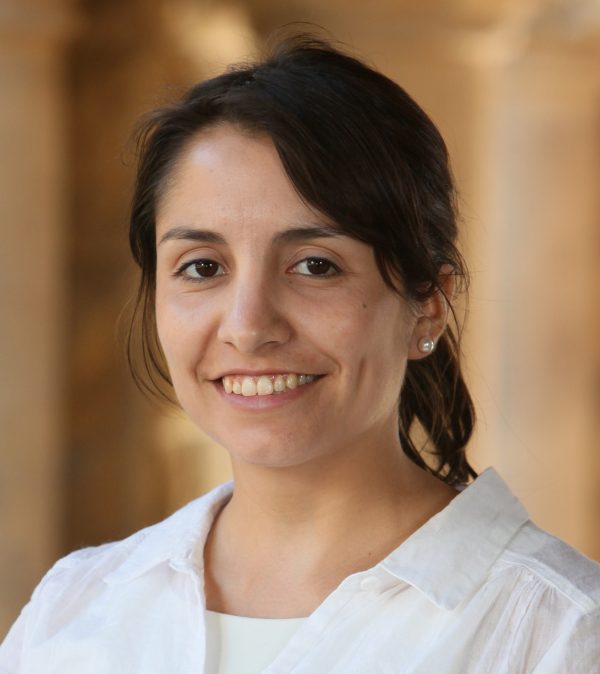 Isabel Hilliger, Chile
Isabel Hilliger, Chile
Pontificia Universidad Católica de Chile
Interest in Learning Analytics (Research Area, etc.) & Interest in serving on the SoLAR Executive Committee: My research has primarily focused on understanding stakeholders’ needs and engagement mechanisms for the use of learning analytics for the continuous improvement of higher education in Latin America. In particular, I am interested in building capacity for institutional adoption of Learning Analytics in Latin American universities by means of data-related processes and policies. In this region, higher education enrolment has had a rapid growth over the past two decades. Because of this growth, a larger number of students are requiring personalized feedback and academic support during their studies. Researchers have proposed to tackle those challenges by means of Learning Analytics solutions. However, Learning Analytics initiatives are still scarce and on a small scale. In this context, I would like to serve in the SoLAR executive committee, aiming to connect Latin American practitioners and researchers with the SoLAR community. I am interested in the design and dissemination of resources to guide policy makers and managers in Latin American institutions as they incorporate Learning Analytics services at an institutional level, besides investing efforts to connect people from this and other regions to Learning Analytics research. I have already gained experience by developing the LALA framework that I could leverage throughout SoLAR.
Biography: Isabel Hilliger is the Associate Director for Assessment and Evaluation at the Engineering School in Pontificia Universidad Católica de Chile (PUC-Chile). Isabel received a BEng from PUC-Chile and a MA in Policies, Organization and Leadership Studies from Stanford Graduate School of Education in U.S.A. Between 2011 and 2013, Isabel led the development of indicators to evaluate school support programs in Chile as the Associate Coordinator for Pedagogical Technical Assistance in the Ministry for Education. Since then, she has been involved in diverse research projects on educational policy and technology enhanced learning in different countries, including a research fellowship at Laspau, a Harvard-affiliated organization. She is currently a PhD candidate in Computer Science at PUC-Chile and her research focuses on the development of processes and learning analytics tools for continuous improvement of higher education in Latin America. In this context, she has served as a researcher in a project titled ‘Building Capacity to Use Learning Learning Analytics to Improve Higher Education in Latin America-LALA Project’. This project is financed by the European Commission, and Isabel has actively participated in the development of a framework to guide the design and implementation of Learning Analytics tools in Latin American universities.
Working Group Interests: Education, Communications or Events
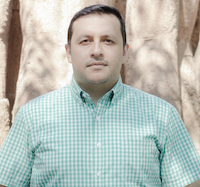 Jorge Javier Maldonado Mahauad, Ecuador / Chile
Jorge Javier Maldonado Mahauad, Ecuador / Chile
Universidad de Cuenca / Pontificia Universidad Católica de Chile
Interest in Learning Analytics (Research Area, etc.) & Interest in serving on the SoLAR Executive Committee: Since I have finished my Ph.D., I bring specific interests for contributing to the field of Learning Analytics. The first one consists of the development of new methods for studying learner behavior in f2f, online, and blended learning contexts, providing feedback to the stakeholders involved (i.e., teachers and learners) during the learning process. The second is to grow and expand the Learning Analytics community initiated by SOLAR, to places that currently have little presence in the LAK conference such as Latin America. This region needs support to develop this nascent field. As a first action and thanks to the ERASMUS + LALA project, we have been able to build a Latin American Community of Learning Analytics with nearly 70 higher education institutions interested in the area (https://www.lalaproject.org/partners/) where I play the role of the coordinator of this community. However, in Latin America, more work is needed with researchers, teachers, practitioners, deans, and other stakeholders. I feel the need to contribute back with my service and support them with digital alphabetization in Learning Analytics supporting different conferences, local LASI, seminars, symposiums, workshops, tutorials, or similar academic events that relate to learning analytics in Latin America.
Biography: Jorge Maldonado is a Full Professor in the Engineering Faculty at the Universidad of Cuenca in Ecuador and Associated Researcher in School of Engineering at the Pontificia Universidad Catholica of Chile in Chile. Also, holds a Ph.D. in Engineering Sciences in the field of Computer Science and a Specialization in Social Data Analysis from the same university, an M.Sc. in Technology Applied to Education, an M.Sc. in TIC Management and B.S. In Computer Science from Universidad de Cuenca (Ecuador). Since the start of my research career, I have been working at the convergence point of Education and Technology. My initial work in learning objects and repositories was the first attempt to model learning behavior and start exploring how to develop quality learning materials from different kinds of learners. This work conducted my research into the field of Learning Analytics where, as part of my doctoral studies, I proposed a methodology for unveiling learning strategies in Massive Open Online Courses (MOOCs). Since I have been an active researcher in this field, working for several European ERASMUS+ Projects such as the MOOC-Maker project (http://moocmaker.org/), the Learning Analytics Latin America-LALA Project (https://www.lalaproject.org/) and leading several national projects in Learning Analytics in Ecuador.
Working Group Interests: Education or Events
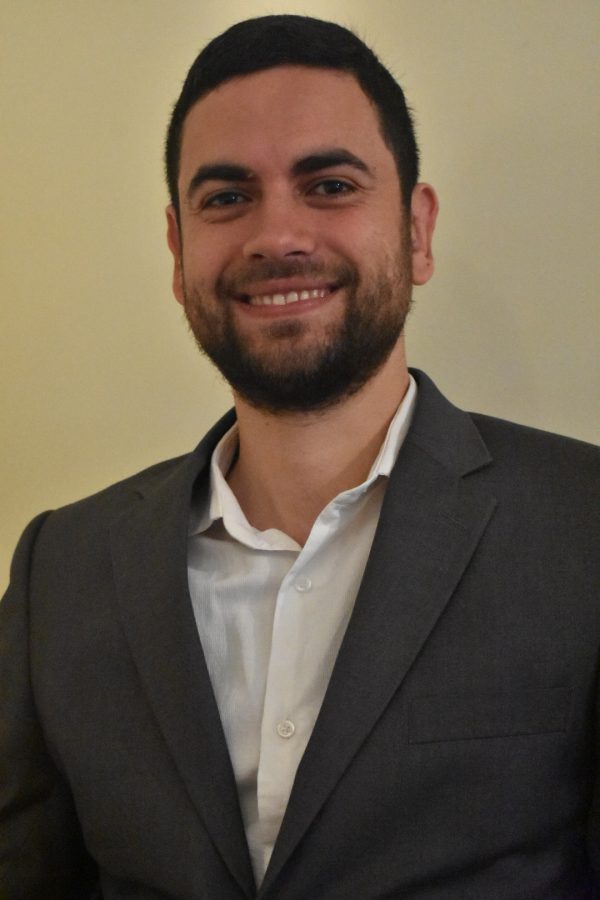 Rafael Ferreira, Brazil
Rafael Ferreira, Brazil
Federal Rural University of Pernanbuco
Interest in Learning Analytics (Research Area, etc.) & Interest in serving on the SoLAR Executive Committee: My research has primarily focused on computer-supported collaborative learning applications in online environments, in addition to the application of writing analytics in feedback provision. In particular, I am interested in applying learning analytics and my background in natural language processing to develop methods to (i) investigate the cognitive and social progress in online discussion and (ii) analyze the quality of the written feedback provided by instructors. Moreover, I am also keen to build up the capacity for learning analytics research and practice in the Latin American region. My current position at my university as Chair of Education Technology Adoption and Data Analytics gives me the resources and connections to work in this direction. Finally, I am willing to support regions in the world that are underrepresented in the learning analytics community.
Biography: Dr. Rafael Ferreira Mello has a Ph.D. in computer science with research interests that span across learning analytics, natural language processing, and educational technology. He is a lecturer and researcher at the Federal Rural University of Pernambuco in Brazil, where he holds the position of Chair of Education Technology Adoption and Data Analytics. Dr. Mello was visiting a postdoctoral research fellow in the School of Informatics at the University of Edinburgh in 2018, where he continues to possess an honorary position. He has worked on several multinational research projects, which involve institutional and organizational partners in Europe, Australia, United States, and Latin America. Dr. Mello is among the most recognized Brazilian researchers in the field of educational technology and natural language processing. He has published in the leading international journals and conference proceedings in the fields of his research. In the last few years, he has served as an assistant editor for the British Journal of Educational Technology and a reviewer for a number of journals and conferences, including the International Learning Analytics & Knowledge Conference (2019), European Conference on Technology Enhanced Learning (2018-2019), Computers and Education (2019), and Internet and Higher Education (2019).
Working Group Interests: Inclusion or Events
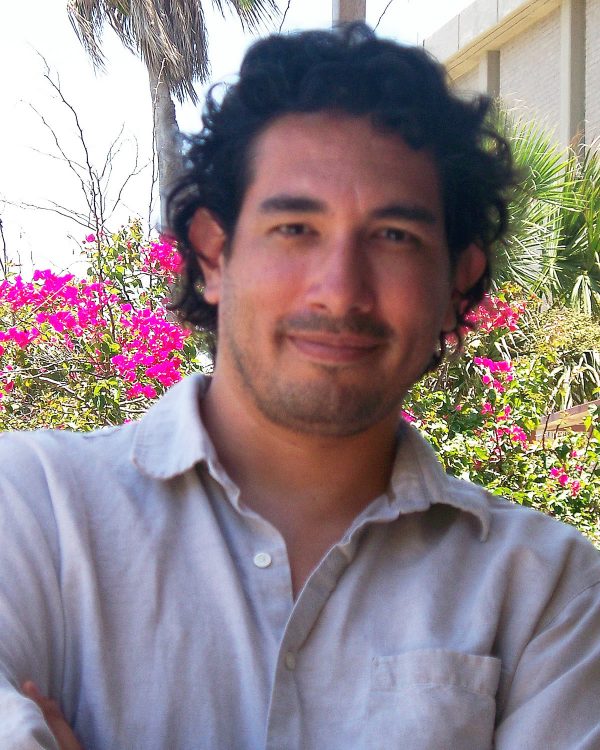 Pablo Munguia, Australia
Pablo Munguia, Australia
RMIT University
Interest in Learning Analytics (Research Area, etc.) & Interest in serving on the SoLAR Executive Committee: My interests in Learning analytics focus on developing and deploying solutions at scale within institutions and the development of accurate metrics and proxies that merge educational theory with practical issues in the classroom. As a practitioner and researcher, I am aware of the challenges associated with the research, in-classroom practice and service areas (including journal and institutional services) that learning analytics constantly faces and believe I can support the Society with my collaborative approach and experience. I am interested in serving on the SoLAR Executive Committee as I believe my strategic acumen and collaborative demeanour would be of constructive service. In 2019 I was runner up for best reviewer at LAK, and believe this recognition reflects my passion and supportive approach towards our colleagues and their research. I strongly support the institutional mentorship program that will enable cross-pollination among universities. I would like to assist in increasing our membership and helping solidify the services that SoLAR can deliver to institutions. I have given presentations at the Institutional meetings and workshops at LASI and ALASI. Serving within the Executive would be an honour that would be repaid by giving my best to help advance our society.
Biography: I am an associate professor in learning analytics and marine biology at RMIT University, Australia and institutional representative at SoLAR. Previously I was faculty member at The University of Texas at Austin and the University of Adelaide, and a postdoc at The Smithsonian Institution. My learning analytics research focuses on metric design, behavioural modelling, and student-information interactions at multiple scales. As former Director of Learning Analytics at RMIT, (a) I created the university’s student data ethical framework, (b) created the Information Governance Board to synchronize data-reliant projects (c) designed teaching metrics assisting academics in understanding classroom diversity and engagement patterns, (d) designed metrics that better inform teaching practice, assist in reflection and is used for promotion applications (d) designed models to understand student progression, satisfaction and success through degree pathways. My work and service focus on establishing and nourishing strong collaborations between researchers (i.e., lead the Learning Analytics Community of Practice) and institutions (e.g., co-founded the AU/NZ Canvas LMS working group). I’m a recipient of the Best Teacher Award from the University of Adelaide and am a Fulbright fellow. I have held several editorial roles across major journals and currently am Editor in Chief of J. Exp. Mar. Biol. Ecol.
Working Group Interests: Membership, Special Interest Groups or Inclusion
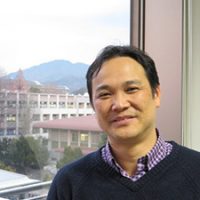 Hiroaki Ogata, Japan
Hiroaki Ogata, Japan
Kyoto University
Interest in Learning Analytics (Research Area, etc.) & Interest in serving on the SoLAR Executive Committee: I have established the Center for Learning Analytics in Kyushu University (February 2016), which was the first center on learning analytics research in Japan (and Asia). The aim of the center is to collect and analyze educational data at a whole of university level in order to improve teaching and learning. Currently I am leading several national research projects on LA in order to develop LA infrastructure at the whole national level. I was a SOLAR EC member in the early stages of the society and a workshop co-chair of LAK 2019, have organized several workshops, and presented some papers in past LAKs. I established LA Asia SIG in SoLAR and will organize LA-Asia Conference at Kyoto in August 2020. Also I will host a LAK conference at Kyoto, Japan in 2022.
Biography: He is a full Professor at the Academic Center for Computing and Media Studies, and Graduate School of Informatics, Kyoto University, Japan. His research includes Ubiquitous and Mobile Learning, CSCL, CSCW, CALL, and Learning Analytics. He has published more than 400 peer-reviewed papers including SSCI Journals and international conferences. He has received several Best Paper Awards such as WebNet1999, CollabTech2008, mLearn 2009, ICCE2010, ICCE 2014, ICALT2015, and APSCE Distinguished Researcher Award in 2014. Also he gave keynote lectures in several countries, e.g., at IEEE WMUTE2008 in Beijing, IETC2009 in Turkey, Mobile Learning 2009 in Spain, TeLearn2009 in Taiwan, ICCE2010 in Malaysia, NDT2012 in Dubai, KSET2012 in Seoul, IEEE CRTIT2013 in India, and ICHL2015 in China. He is an associate editor of IEEE Transactions on Learning Technologies, RPTEL and IJMLO, and also an editorial board member of IJCSCL, IJAIED and SLE (International Journal of Smart Learning Environments). He was also an executive committee member of APSCE (Asia-Pacific Society for Computers in Education), and IamLearn (International Association for Mobile Learning).
Working Group Interests: Special Interest Groups
Voting Information: All SoLAR individual and students members are eligible to vote for all positions. Links to access the online voting system will be sent to SoLAR members via email starting on January 17, 2020 (Eastern Time). Voting will end on January 31, 2020 at 11:59pm Eastern. All members who join SoLAR by January 29, 2020 will be eligible to vote and will receive a ballot after successfully joining SoLAR. Any questions, please email solarsocietymgmt@gmail.com
